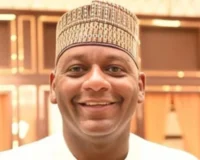The Federal Government through the intervention of the Central Bank of Nigeria (CBN) injected a total of N213 billion on stabilisation of Nigeria electricity market in 2015, an official of the National Electricity Regulatory Commission (NERC), has said.
NERC Commissioner, Engineering, Performance and Monitoring, Professor Frank Nwoye Okafor, who made this known, enumerated several intervention efforts of the Federal Government to ensure improvement in power generation and distribution in the country.
He explained that the Nigerian Electricity Market Stabilisation Fund of N213 billion was (CBN-NEMSF) was set up in 2015 with a repayment period of 10 years.
Okafor, a professor of Electric Power and Control, who was a guest lecturer at the maiden edition of the Energy Commission of Nigeria (ECN) Quarterly Energy Lecture Series held in Abuja, however, lamented that Nigeria currently ranked as one of the lowest in grid energy consumption in the world.
He disclosed that there was also the Payment Assurance Facility (PAF) of N701 billion for generation companies to provide minimum level payment to Gencos as well as gas suppliers among other interventions.
Speaking on metering, Okafor disclosed that as of June 2021, 4.4 million customers were metered representing 35 per cent of the total customer number of 12.6 million.
He added that 588,521 were installed under the National Mass Metering Programme (NMMP) started in October 2020.
He revealed that the plan was to meter 1 million under phase 0, noting that the new metering regulation issued by NERC effective August 2021 harmonises the MAP and NMMP to ensure accelerated roll of meters to bridge the metering gap which stands at 8.2 million.
Okafor called on the Energy Commission of Nigeria (ECN), to play a leading role in transformation research, development, demonstration, and deployment of an extensive range of clean energy and efficiency technologies to ensure improved environmental health and cost-effective use of energy.
Earlier, the Director-General of NERC, Prof. Eli Jidere Bala, said the lecture series was expected to bring out recommendations that would have the potentials to remove obstacles towards the adequate, reliable, cost effective, and sustainable energy supply into the economy with the active participation of the private sector.







